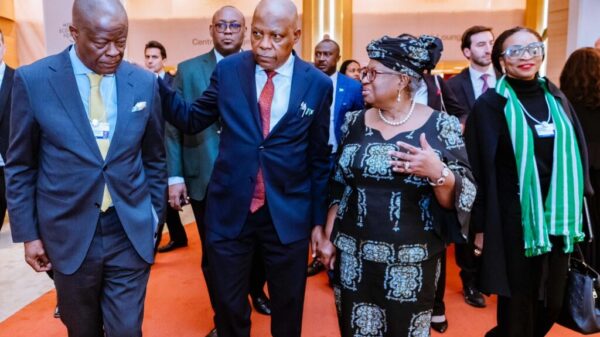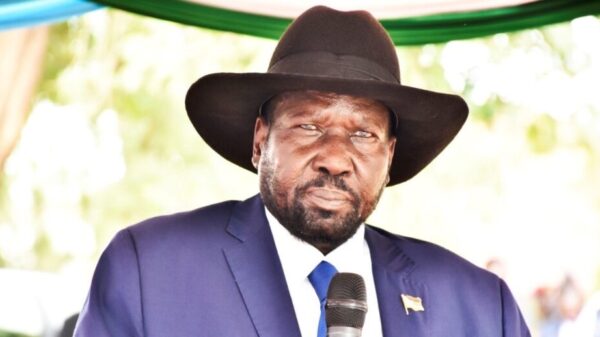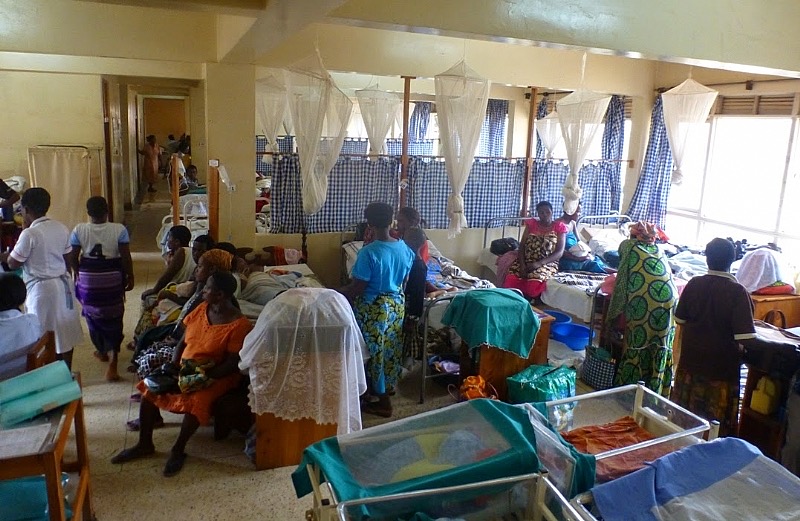Amidst global concerns over maternal mortality rates, Nigeria emerged as a focal point of the issue, with recent data from the World Bank Group highlighting the country’s alarming position as the global leader in maternal deaths during childbirth.
Dr Olumide Okunola, Senior Health Specialist at the World Bank Group, made this statement during the current intervention phase, which commemorates the National Closeout and Dissemination Meeting of the Evidence for Action – MamaYe Programme after 12 years of implementation, held on Tuesday in Abuja.
The Evidence for Action Programme (E4A-Mamaye), managed by Options Consultancy Limited, was established in 2012 by FCDO (then DFID). In 2015, the programme was adopted by the Bill and Melinda Gates Foundation (BMGF), and since then, three cycles of intervention phases have been completed.
The project aimed to improve maternal and newborn health through the accountability of State actors in delivering quality services.
The end of this current intervention phase marks the closeout of the E4A-Mamaye programme in Nigeria.
Speaking at a panel session tagged “Delivering UHC through Localization: Building Resilient Grassroots Coalition and Accountability Mechanisms for Stronger Health Systems in Nigeria and Africa,” Okunola said it was clear that the country faces significant challenges when it comes to maternal and child health, with high rates of maternal mortality and neonatal deaths.
He said that in a bid to address the significant challenges faced in maternal and child health, the government has rolled out a series of initiatives aimed at reducing maternal and neonatal mortality rates across the country.
“The government’s focus on enhancing primary healthcare services, establishing Comprehensive Emergency Obstetric and Newborn Care Centres, and implementing a referral transport system signals a concerted effort to prioritize the well-being of mothers and newborns.
“The introduction of a conditional grant, the Basic Healthcare Provision Fund (BHCPF), to states underscores the government’s commitment to improving healthcare delivery, with a specific emphasis on maternal, infant, and child health.
“By proposing conditions that mandate states to allocate BHCPF funds towards maternal and child health initiatives, Nigeria aims to ensure that resources are utilized effectively to address key health indicators and improve health outcomes for women and children,” he said.
Furthermore, he said that the federal government’s plan to make at least two public Primary Healthcare Centres (PHCs) functional per ward, along with the development of criteria for PHC functionality, highlights a comprehensive approach to strengthening primary healthcare services at the grassroots level.
“By integrating PHCs into a broader healthcare system and establishing functional Comprehensive Emergency Obstetric and Newborn Care (CEmONC) centres in each local government area, Nigeria seeks to create a network of healthcare facilities that provide accessible, affordable, and high-quality services to communities nationwide,” he said.
He said that the engagement of community health workers as essential bridges between communities and healthcare facilities further enhances the government’s efforts to improve access to maternal and child health services.
“By empowering community health workers and strengthening their linkages with primary healthcare facilities, Nigeria aims to generate demand for essential care and reduce maternal and child mortality rates effectively,” he said.
According to him, as these initiatives are rolled out and implemented, it will be crucial to monitor progress, ensure efficient resource allocation, and engage with stakeholders to drive sustainable improvements in maternal and child health outcomes.
Dr Gafar Alawode, Director of DGI Consult Limited, emphasised the significance of prioritising people, especially in a country like Nigeria, and achieving universal health coverage, particularly during challenging times.
Alawode highlighted the need for leadership to address these issues and stressed the urgency of positioning the healthcare sector as a priority.
He remarked, “This project is seen as timely and necessary to meet current needs.”
Mr. Baruwa Basit, Lagos State Bureau of Statistics/Co-Chair (LASAM) Evidence Sub Committee, noted a significant increase in budget allocation and release for maternal and child health initiatives in response to the governor’s directive during the COVID-19 lockdown period.
“The rapid escalation from zero to 81.4 per cent between August and September 2020, followed by achieving 100 per cent by December, underscores the effectiveness of concerted advocacy efforts, especially through social media campaigns like the Twitter storm,” he said.
Basit highlighted that by leveraging digital platforms and social media spaces, Lagos state was able to generate widespread awareness and support for prioritizing maternal and child health services during a critical time.
“This demonstrates the power of community mobilization and online activism in driving policy change and ensuring that essential healthcare services remain accessible, even during challenging circumstances like lockdowns.
“Moving forward, sustaining this momentum and continued advocacy will be essential to maintain and further improve maternal and child health outcomes in our community,” he said.
In his remarks, Dr Ufuoma Omo Obi, Regional Director of Options Consultancy Services, highlighted the significance of data-driven decision-making, stressing the importance of utilizing maternal and infant death data to inform programming.
“Initiatives like the Maternal and Perinatal Death Surveillance and Response (MPDSR) focus on investigating causes of deaths and implementing preventive measures,” he said.
Omo Obi emphasized the pivotal role of communities in driving change, citing examples of community-driven transportation systems to address delays in accessing healthcare facilities.
“Communities are increasingly taking ownership of primary healthcare outcomes, leading to improved accountability and engagement with stakeholders.
“Collaboration emerges as a cornerstone of success, with civil society, government, and traditional leaders working in tandem through accountability mechanisms.
“This collaborative approach has led to increased financing for primary healthcare interventions and improved budgetary allocations in various states.
“As the E FOR A program nears its conclusion, he urged sustained commitment from all stakeholders, emphasizing the enduring role of community-driven initiatives like MAMA YE and SLAMS,” he said .
He urged government, civil society, and communities to continue to work collaboratively to address maternal and child health challenges and ensure the sustainability of progress achieved.
























